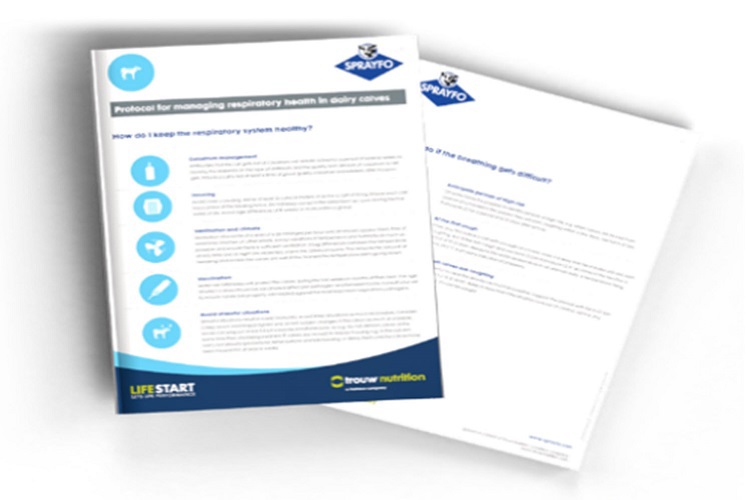
Managing respiratory health in young calves
This is crucial to ensure they reach their future potential. When the respiratory system is challenged, a calf’s mucus production increases, to help it to clear its airways.
Minimise risk of respiratory problems by providing optimal environmental conditions to increase the immunity of your calves. For help, review the protocol to maximise respiratory health, downloadable below.

Preventing neonatal calf diarrhoea or scours is key to reducing mortality
More than half of all neonatal calf deaths are related to diarrhoea. Nutritional factors such as poor-quality calf milk replacers and poor colostrum management contribute to the incidence of neonatal calf diarrhoea. The dehydration resulting from scours, caused by organisms such as cryptosporidium parvum, can also be fatal to a calf.
Dehydration resulting from diarrhoea is the cause of 55% of all calf deaths in their first stage of life.
Frequently Asked Questions
Is a calf who suffered from multiple lung-problems still suitable as a replacement heifer?
Unfortunately, no, because the damage caused by lung-problems is irreversible, will not heal and has a negative impact on resilience and production in later stages. The best recommendation we can make is to sell a calf who has experienced many lung problems.
Do you recommend mixing oral electrolyte solutions (ORS) into milk for calves sick with diarrhoea?
Milk absorbs too much of the elevated levels of salt and sugar contained in electrolyte solutions, increasing the risk of diarrhoea. If you choose to use an electrolyte solution like Sprayfo OsmoFit, check the advised dosing rate before mixing into water, and provide it in between milk feedings.



